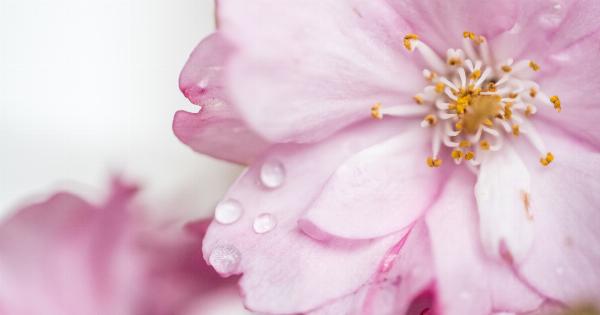Allergic rhinitis is a common condition that affects millions of children around the world. It is often called hay fever, and it happens when the child’s immune system reacts to substances in the air. These substances are called allergens.
They can be anything from pollen to dust mite feces.
Allergic rhinitis can cause a variety of symptoms, such as sneezing, itching, a runny nose, and congestion. The condition can make it hard for your child to concentrate, sleep, and function normally.
If left untreated, allergic rhinitis can even lead to other health problems, such as chronic sinusitis, ear infections, and asthma.
The causes of allergic rhinitis
Allergic rhinitis is caused by an overreaction of the immune system to allergens. When the child comes in contact with an allergen, their immune system produces an antibody called immunoglobulin E (IgE).
This antibody triggers the release of histamine and other chemicals in the body. These chemicals cause the symptoms of allergic rhinitis, such as inflammation, swelling, and itching.
Some of the most common allergens that trigger allergic rhinitis in children include:.
- Pollen from trees, grasses, and weeds
- Dust mites
- Mold spores
- Animal dander (from pets such as cats and dogs)
- Cockroach feces
- Environmental pollutants (such as cigarette smoke and car exhaust)
The symptoms of allergic rhinitis
Allergic rhinitis can cause a variety of symptoms in children, including:.
- Sneezing
- Runny nose
- Nasal congestion
- Itchy nose
- Itchy eyes
- Watery eyes
- Postnasal drip
- Coughing
- Headache
- Dark circles under the eyes (called allergic shiners)
- Puffiness around the eyes
The symptoms of allergic rhinitis can range from mild to severe, and they can have a significant impact on your child’s quality of life. If your child has allergic rhinitis, they may also have trouble sleeping, eating, and playing.
The symptoms can also make it harder for your child to concentrate in school or participate in sports and other activities.
The diagnosis of allergic rhinitis
If you suspect that your child has allergic rhinitis, you should take them to see their healthcare provider. The provider will perform a physical exam and ask about your child’s symptoms and medical history.
They may also recommend allergy testing to determine which allergens are triggering your child’s symptoms.
Allergy testing can involve skin tests or blood tests. For a skin test, a small amount of the suspected allergen is placed on the skin, and the skin is then pricked or scratched.
If a reaction occurs, such as redness or swelling, it indicates that the child is allergic to that allergen. Blood tests measure the amount of IgE antibodies in the blood in response to specific allergens.
The treatment of allergic rhinitis
The goal of the treatment for allergic rhinitis is to reduce the symptoms and prevent complications. There are several treatment options available, including:.
- Medications: Antihistamines, decongestants, and nasal corticosteroids can help relieve the symptoms of allergic rhinitis. These medications can be purchased over-the-counter or prescribed by your child’s healthcare provider.
- Allergy shots: Also known as immunotherapy, allergy shots can help desensitize your child’s immune system to specific allergens. Over time, the shots can reduce the severity of allergic reactions.
- Allergen avoidance: Reducing your child’s exposure to allergens can help reduce their symptoms. For example, you can use allergen-proof covers on pillows and mattresses, vacuum frequently, and keep pets out of the bedroom.
Your child’s healthcare provider can help you determine which treatment options are best for your child based on their symptoms and medical history.
Preventing allergic rhinitis
While it may not be possible to prevent allergic rhinitis entirely, there are some steps you can take to reduce your child’s risk of developing the condition:.
- Minimize your child’s exposure to known allergens
- Keep your home clean and free of dust and other allergens
- Encourage your child to wash their hands frequently to reduce their exposure to germs and viruses that can trigger allergic reactions
- Encourage your child to maintain a healthy lifestyle, including regular exercise and a balanced diet
- Ensure your child receives all of their recommended vaccinations to reduce their risk of developing respiratory infections
By taking these steps, you can help reduce the risk of your child developing allergic rhinitis and other related health problems.




























